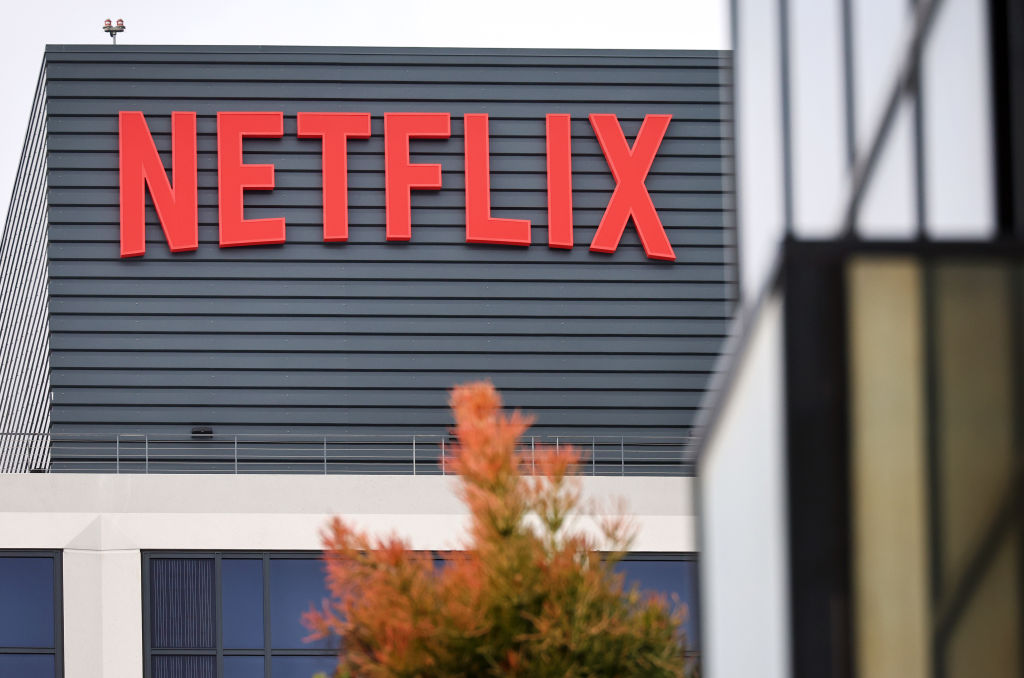Netflix steams ahead of its competitors
Netflix has beaten its rivals, so how can it keep growing?


Get the latest financial news, insights and expert analysis from our award-winning MoneyWeek team, to help you understand what really matters when it comes to your finances.
You are now subscribed
Your newsletter sign-up was successful
Want to add more newsletters?
Streaming service Netflix has pulled further ahead of its rivals, says Bloomberg’s Lucas Shaw. It added 8.05 million customers in the second quarter and raised estimates for annual sales and profit margins.
The subscriber figures eclipsed expectations in every region worldwide and included 2.8 million new customers in the Asia-Pacific region, with sales climbing by 17% year on year. This growth was partially fuelled by a number of “major hits”.
However, the main driving force was a crackdown on password sharing, as well as a lower-priced subscription plan based around advertising, which now applies to 40 million people. Netflix, with its 27% operating margin and “robust” free cash flows, may be the “envy of the sector”, says Lex in the Financial Times.
Try 6 free issues of MoneyWeek today
Get unparalleled financial insight, analysis and expert opinion you can profit from.

Sign up to Money Morning
Don't miss the latest investment and personal finances news, market analysis, plus money-saving tips with our free twice-daily newsletter
Don't miss the latest investment and personal finances news, market analysis, plus money-saving tips with our free twice-daily newsletter
But winning the advertising war “will be easier said than done”. It is still a “minnow” in advertising, compared with the “well-oiled” ad machines of YouTube and Amazon, and it is only just starting to build its own ad-tech platform.
How can Netflix keep growing?
One option would be to show more ads; or it could introduce ads to its other ad-free tiers, taking a leaf from Amazon’s Prime Video where “showing ads is the default mode”. However, this could backfire as Netflix customers “will have less tolerance for ads, and for being asked to pay more to stay ad-free”.
Netflix should ditch its reluctance to engage in dealmaking, says Jennifer Saba on Breakingviews. It should consider bidding for the Max streaming service of rival Warner Bros Discovery, whose management is contemplating selling off assets.
Max “isn’t as profitable as Netflix”, but it also contains successful studio Warner Bros, as well as HBO, which owns the rights to hit TV show, Game of Thrones. While the cost may require Netflix to issue more shares, it might be worth it if it gives the service “valuable intellectual property” to help it “keep viewers and gain more”.
This article was first published in MoneyWeek's magazine. Enjoy exclusive early access to news, opinion and analysis from our team of financial experts with a MoneyWeek subscription.
Get the latest financial news, insights and expert analysis from our award-winning MoneyWeek team, to help you understand what really matters when it comes to your finances.

-
 The rare books which are selling for thousands
The rare books which are selling for thousandsRare books have been given a boost by the film Wuthering Heights. So how much are they really selling for?
-
 Pensions vs savings accounts: which is better for building wealth?
Pensions vs savings accounts: which is better for building wealth?Savings accounts with inflation-beating interest rates are a safe place to grow your money, but could you get bigger gains by putting your cash into a pension?
-
 The rare books which are selling for thousands
The rare books which are selling for thousandsRare books have been given a boost by the film Wuthering Heights. So how much are they really selling for?
-
 How to invest as the shine wears off consumer brands
How to invest as the shine wears off consumer brandsConsumer brands no longer impress with their labels. Customers just want what works at a bargain price. That’s a problem for the industry giants, says Jamie Ward
-
 A niche way to diversify your exposure to the AI boom
A niche way to diversify your exposure to the AI boomThe AI boom is still dominating markets, but specialist strategies can help diversify your risks
-
 New PM Sanae Takaichi has a mandate and a plan to boost Japan's economy
New PM Sanae Takaichi has a mandate and a plan to boost Japan's economyOpinion Markets applauded new prime minister Sanae Takaichi’s victory – and Japan's economy and stockmarket have further to climb, says Merryn Somerset Webb
-
 Early signs of the AI apocalypse?
Early signs of the AI apocalypse?Uncertainty is rife as investors question what the impact of AI will be.
-
 8 of the best properties for sale with beautiful kitchens
8 of the best properties for sale with beautiful kitchensThe best properties for sale with beautiful kitchens – from a Modernist house moments from the River Thames in Chiswick, to a 19th-century Italian house in Florence
-
 Three key winners from the AI boom and beyond
Three key winners from the AI boom and beyondJames Harries of the Trojan Global Income Fund picks three promising stocks that transcend the hype of the AI boom
-
 RTX Corporation is a strong player in a growth market
RTX Corporation is a strong player in a growth marketRTX Corporation’s order backlog means investors can look forward to years of rising profits